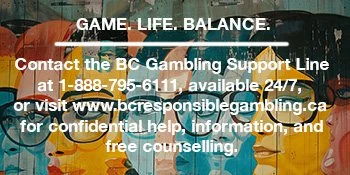Why Diversity In Game Development Is Changing The Industry For The Better
In recent years, you may have noticed there has been a dramatic call for diversity and inclusion in many industries, whether it’s the consumer goods industry or the finance sector. The gaming industry is also no exception, which is fantastic, especially when you take into account that around 76% of the workforce in this global multi-billion-dollar industry is male.
There have been huge efforts to change this and make the industry more inclusive of women in the hope that, one day, things will even out and eventually bring this number down to around an even 50%.
It’s happening in other industries, and here’s the good news: the gaming industry is leading the way in improving diversification and inclusion compared to many other industries, which is a huge step in the right direction and a positive start for everyone involved.
With that said, let’s now take a closer look at why diversity in the gaming industry, more specifically, in the game development sector, is changing for the better and what this means for the future of the digital entertainment industry.
What is diversity and inclusion in the gaming industry?
Diversity and inclusion in the gaming industry is not just about evening out the male/female gender split ratio to a more reasonable 50-50. It’s also about including even more people who identify as non-binary or one of the many other gender identities. Beyond that, it’s about being more inclusive of people with specific physical disabilities and of all ages, races, religions, and backgrounds, no matter what their beliefs are.
A lack of diversification in the workforce can sometimes present a range of problems, especially when it is entirely dominated by one specific group of the same gender or age.
Diversity and inclusion in the traditional video gaming and iGaming industries aim to address these issues to provide exciting career opportunities to anyone skilled and creative enough to do the job at hand — provided they have the passion to fill the position and complete the roles required.
They must also have the desire to help grow their company and be capable of working well either alone or as a collaborative effort in small or large teams.
According to recent reports and the latest statistics, a lack of diversity and inclusion, and, therefore, an imbalanced workforce, can drive away highly talented and capable workers — all because of the perpetuated and unfair stereotyping, plus the unwillingness to adapt to modern times.
Therefore, adopting a more modern approach can help companies grow, raise their profile, and foster a sense of trust and transparency in the day-to-day operations of our favorite brands.
Diversification doesn’t just mean hiring people because of their age, orientation, gender, or skin color — it also means paying everyone equally based on their roles. One way that companies are improving diversity and inclusion is via employee resource groups (ERGs) and other similar initiatives.
Why are inclusion and diversity seen as important these days?
The statistics tell us that although around 76% of the workforce in the gaming industry is male, meaning only 24% is female. However, the male/female gender split ratio with actual gamers is far closer, at around 50/50 (50% male and 50% female gamers), which is pretty incredible. It just goes to show how today’s digital gaming activities and platforms are now fully inclusive of these two genders.
Inclusion/diversity are seen as important these days — not only because of the moral issue but also because they both bring many benefits for consumers and business owners.
For example, diversity can help foster innovation — diverse teams are more productive and collaboratively better at making decisions far quicker than teams that aren’t diverse.
Ultimately, fully functional and highly diverse teams (especially companies with more racial, age, gender, and ethnically diverse teams) are one step ahead of their competitors and are more likely to succeed.
Which shining examples of gaming industry software providers and game development studios focus on inclusion and diversity?
In the iGaming industry — a term used to describe fully licensed and regulated online casino websites and other similar real money betting sites, like the top-rated brands currently available on AskGamblers — some of the shining examples of diverse companies that focus on inclusion are the following market-leading, top-tier software providers and game development studios:
Evolution Gaming
NetEnt
Pragmatic Play and its partner studio, Reel Kingdom
Playtech and its many subsidiary game development studios — AshGaming, Rarestone, Quickspin, Vikings, Eyecon, and Origins
IGT
Yggdrasil
BTG
Play’n GO
GG (GamesGlobal) and its many partner studios — Stormcraft Studios, Neon Valley Studios, Fortune Factory Studios, Just for the Win Studios, Gameburger Studios, and many others
Many of these multi-award-winning software providers actively focus on boosting diversity and inclusion in the workplace, and they even publish their Gender Pay Gap reports on their websites for all to see — which, again, is fantastic in the modern era.
Other notable companies also following suit in the iGaming sector are Thunderkick, iSoftBet, SG Digital, ELK Studios, Skywind Group, OnAir Entertainment, Authentic, Inspired, Novomatic, Iron Dog Studio, Light & Wonder, PushGaming, Playson, and countless others. The list goes on.
In the traditional gaming sector, some of the major software providers and game development studios that are paving the way for a more inclusive and diverse workforce and working environment are Activision Blizzard, Ubisoft, Nintendo, Square Enix, Epic Games, Tencent, Electronic Arts, and Microsoft.
That’s not forgetting Konami, Capcom, SONY, Sony Interactive Entertainment, Rockstar Games, Roblox, Take-Two Interactive, Oculus Studios, Sega, Nexon, and Valve, to name a few.
Conclusion
Thanks to companies like this, pretty much anyone and everyone these days with a passion for developing games can enter this exciting industry and embark upon a career in crafting hit titles of tomorrow — whether that means developing casual/Indie games or the more graphically demanding, high-end triple-A blockbuster video games of the future.
Inclusion and diversity have literally opened up the world of video game development for many millions of budding developers worldwide.
There’s no denying: the gaming industry is still a little bit behind compared to other industries, but on a positive note, it continues to ramp up efforts to be a true champion of diversification and inclusion. However, the efforts of industry leaders won’t be fully realized for at least another five to ten years from now.
In other words, to see whether initiatives have been successful or not, we will just have to keep a close eye on this burgeoning industry that continues to expand each year in terms of the annual global revenue generated.
Please play responsibly. The 2SLGBTQiA+ community is known to be at higher risk for gambling-related harm due to a range of social and economic factors. If you or someone you know is struggling with gambling, there are support services available in British Columbia. Contact the BC Gambling Support Line at 1-888-795-6111, available 24/7, or visit www.bcresponsiblegambling.ca for confidential help, information, and free counselling.









